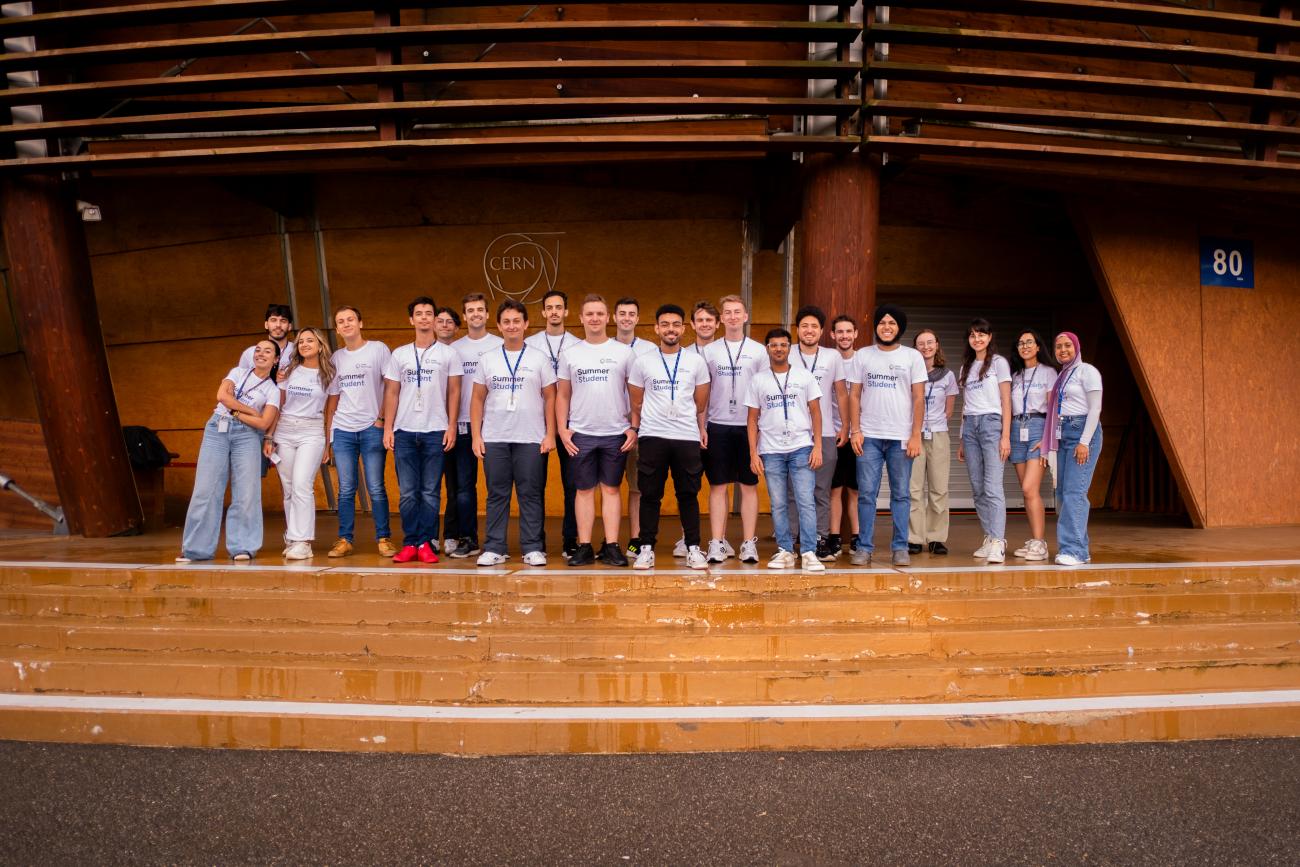The 2024 CERN openlab Summer Student Programme has started!
All summer students have arrived, and the programme is officially starting today, with CERN experts delivering a series of special lectures during the next five weeks. CERN experts will cover various computing topics for five weeks, from high-performance computing and artificial intelligence technologies to quantum computing. You can watch the lectures on the CERN Webcast website.
Anyone interested in exploring computing at CERN can participate in the free online lecture programme. The complete list of topics is available here.
Attendees will learn how CERN processes big data from particle collisions in the LHC and the techniques used to improve data flows. New solutions to tackle the computing challenges posed by the upcoming High-Luminosity Large Hadron Collider (HL-LHC) will also be explored, among other topics.
Education is central to CERN openlab's mission to promote the next generation of computing experts. Thirty students from 21 nationalities representing the universities below were selected out of over 6660 applicants. Students will work on various computing projects during a nine-week hands-on experience with advanced computing technologies, which will provide excellent opportunities for students' future careers.
Meet the selected students:
Michal Mikolaj Wojcik, University of Warsaw
Cristobal Gimenez Devis, University of Bergen
Ali Hafez, Yale University
Nourhene Jallali, National Engineering School of Tunis
Jakub Ogrodowczyk, Wroclaw University of Science and Technology
Karanjot Singh, Jaypee Institute of Information Technology
Volodymyr Svintozelskyi, University of Valencia
Asal Mehrabi, Universitat Politècnica de Catalunya
Gehad Ahmed, The American University in Cairo
Annunziata Alvarez-Cascos Hervias, Universidad Carlos III de Madrid
Andrea Maria Ola Mejicanos, Berea College
Anastasiia Petrovych, Ukrainina Catholic University
Saumy Sharma, Institute of Technology Guru Ghasidas Vishwavidyalaya
Irina Bradu, Politechnica University of Bucharest
Riccardo Carissimi, Università degli Studi di Milano
Fabio Cufino, TU Dortmund University
Mouad El Haouari, Ecole Nationale Superieure d'Informatique (Alger)
Isidro Javier Garcia Fernandez, Universidad de Málaga
Mihail Codrin Iftode, University of Edinburgh
Tomasz Jan Kisiel, Cracow University of Technology
Christian Alex Klempau Funk, Pontificia Universidad Católica de Chile
Kacper Kamil Kozik, AGH University of Science and Technology
Thomas Mauran, Polytech Montpellier
Henry Mutegeki, Makerere University
Zeynep Ozturk, Dokuz Eylul University
Ruben Perez Mercado, Universidad de Granada
Mohammed Touami, Ecole Nationale Superieure d'Informatique (Alger)
Victor Virag, University College London
Siria Yerlany Sadeddin Mejia, Universidad Nacional de Colombia
Guilherme Paulino, Universidade Estadual de Campinas

